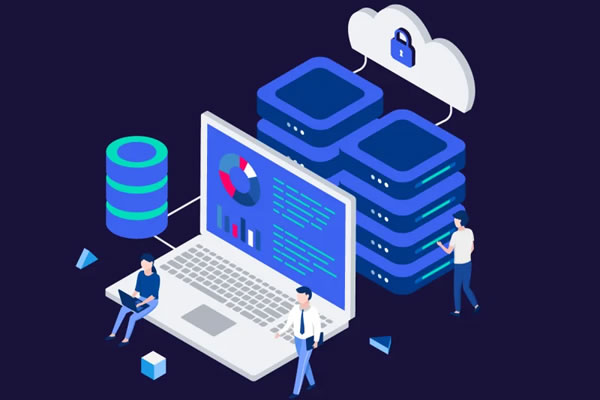
in recent years, with the rapid development of network technology, servers have been frequently arrested, especially in countries such as germany. the server being paid out not only has a serious impact on the company's operations, but may also lead to security risks such as data leakage. this article will analyze the cases of german server being paid and put forward corresponding preventive measures to help enterprises ensure their data security.
background of german server being handed over
germany is known for its strict data protection laws that aim to protect user privacy and data security. however, this also leads to some companies facing the risk of being paid during their operations. usually, the reasons for server payment include failure to comply with data protection regulations, suspected intellectual property infringement or other illegal acts. understanding these backgrounds can help companies be vigilant and avoid potential risks.
case analysis: german server was handed over
in germany, a well-known internet company was investigated and dealt with by law enforcement agencies for failing to properly process user data, and its server was seized. the investigation shows that the company has serious vulnerabilities in the processing and storage of user data, resulting in a large amount of sensitive information leaked. this incident not only brought huge fines to the company, but also seriously damaged its brand reputation. by analyzing this case, companies should realize the importance of compliant operations.
common risk factors
when using german servers, companies may face a variety of risk factors. first of all, failure to comply with relevant gdpr (general data protection regulations) may lead to legal liability. secondly, improper server configuration or insufficient security measures will easily be attacked by hackers. in addition, untimely data backup and lack of monitoring and auditing will also increase the risk of payment. identifying these risks will help enterprises take corresponding preventive measures.
prevention measures 1: enhance data protection compliance
enterprises should carefully study data protection laws and regulations in germany and the eu to ensure that all operations comply with regulatory requirements. establish a complete data processing and management system and conduct regular compliance inspections. at the same time, train employees to enhance their legal awareness and ensure that every employee understands the importance of data protection and their corresponding responsibilities. compliance is not only a legal requirement, but also a cornerstone of the long-term development of the enterprise.
prevention measures 2: strengthen network security protection
in addition to compliance, enterprises also need to strengthen network security protection. first, regularly update server software and security patches to prevent hackers from exploiting vulnerabilities. secondly, deploy a firewall and intrusion detection system to monitor network traffic in real time and detect abnormal activities in a timely manner. in addition, regular security audits and penetration tests are conducted to ensure the safety and stability of the system.
prevention measures 3: improve data backup and recovery mechanism
enterprises should establish a complete data backup mechanism to ensure that important data is backed up regularly and stored in a safe place. data recovery plans are also crucial to ensure that business can be restored quickly in the event of a data breach or server payment. through these measures, enterprises can effectively reduce losses caused by server payment.
conclusions and suggestions
the frequent occurrence of german server payments reminds enterprises to pay attention to data protection and network security. by enhancing compliance, strengthening network security protection, and improving data backup mechanisms, enterprises can effectively reduce the risk of being paid. it is recommended that enterprises regularly evaluate their own security status and adjust their prevention strategies in a timely manner to adapt to the ever-changing network environment and legal requirements. only in this way can we ensure the sustainable development of the enterprise and the security of user data.
- Latest articles
- Understand Hong Kong Station Cluster Leasing Regulations To Avoid Unnecessary Troubles
- Which High-quality Brands Are Recommended By Taiwanese Cloud Media Server Manufacturers?
- How To Effectively Connect To Cambodian Servers To Ensure Data Security
- Understand The Configuration And Performance Evaluation Of Cambodian Cloud Servers
- German Server Ip Recommendation And Usage Experience Sharing For Toilet Games
- How To Choose The Right Cn2 Direct Connection Server From China To Japan
- Steps And Precautions For Joining A Korean Support Station Group Account
- Market Status And Future Trends Of Kvm Vps Hong Kong
- Learn More About The Technical Characteristics Of Rheinland Machine Roomless Elevators
- How To Find Suitable Korean Cloud Server Recommendations On Zhihu
- Popular tags
-
How To Optimize Your German Server Hosting Experience
This article will explore how to optimize your German server hosting experience, improve website performance, ensure data security, and choose the right hosting service. -
The Latest Trends And Development Directions Of The German Server Hosting Market
discuss the latest trends and development directions of the german server hosting market, and analyze the impact of technological progress, compliance, green environmental protection, etc. -
Understand The Security And Management Measures Of German Server Passwords
this article deeply discusses the security and management measures of german server passwords to help users improve their data protection capabilities and ensure server security.


